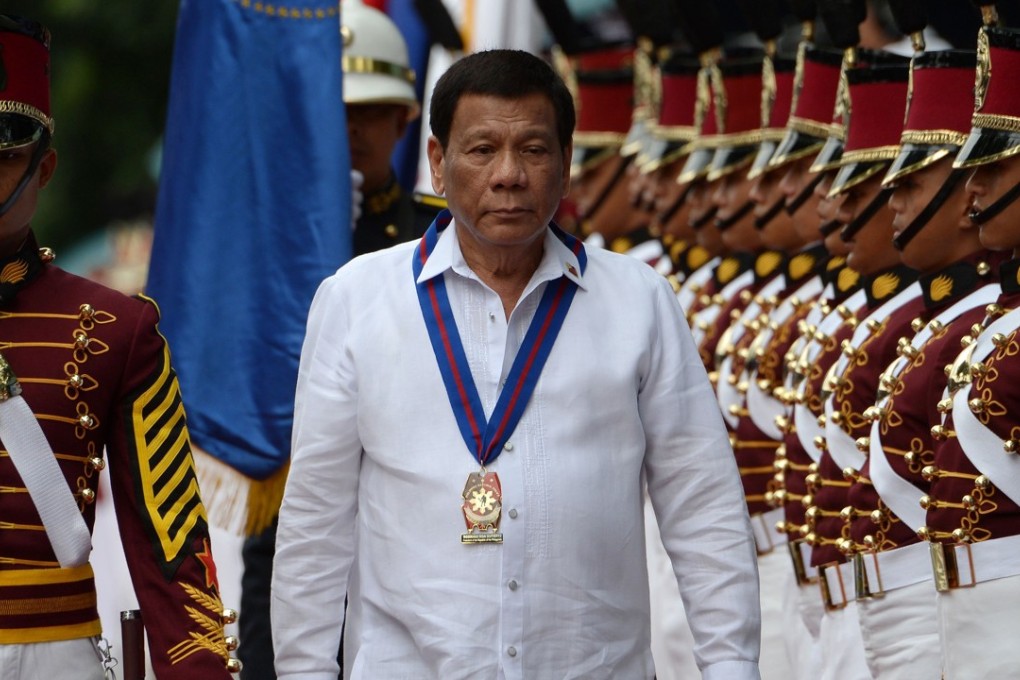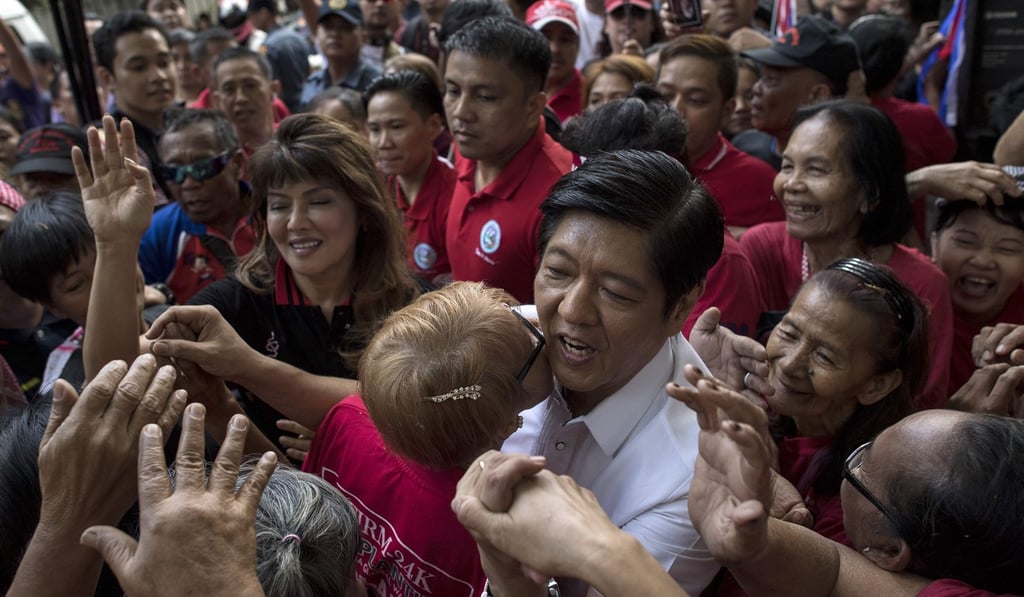Is Rodrigo Duterte paving the way for ‘Bongbong’ Marcos to succeed him as Philippine president?
The elder Ferdinand Marcos declared martial law in 1972 and held power for 14 years until his removal in the bloodless, military-backed People Power uprising

Philippine President Rodrigo Duterte could step down if the son of former dictator Ferdinand Marcos succeeds in overturning his 2016 vice-presidential election defeat, Duterte’s spokesman said on Thursday.
Duterte’s single term ends in June 2022 and he has spoken often recently about quitting before that. At two separate events on Tuesday he said he was “ready to go”, expressing frustration about his failure to tackle illicit drugs and corruption in government.
However, he said was reluctant to do that now because a constitutional succession would mean handing power to Vice-President Leni Robredo, whom he said was not up to the job.
Robredo, who leads the opposition party, was not Duterte’s choice for vice-president and was elected separately having narrowly defeated Ferdinand Marcos Jnr, the son and namesake of the ousted former ruler. Marcos, better known as “Bongbong”, has challenged the result alleging fraud.
The Supreme Court has ordered a recount, a complex process that got underway in April and could take several years. Robredo says she won fairly.
